WQI News
Tiancheng Song earns DOE Early Career award
Professor Tiancheng Song has been selected for an Early Career Research Program (ECRP) award by the U.S. Department of Energy. Established in 2010, this prestigious program aims to support outstanding scientists early in their careers …
Read the full article at: https://www.physics.wisc.edu/2026/01/20/tiancheng-song-earns-doe-early-career-award/Save the date: The annual Workshop on Recent Developments in Electronic Structure was just announced!
Crossroads of Ideas hosted prof. Aws Albargouthi, prof. Matthew Otten and Dr. Katerina Moloni for the Quantum Frontiers fire chat discussion.
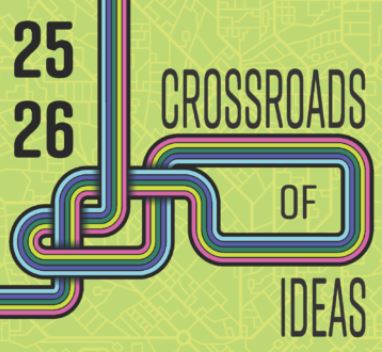
Quantum science might sound like it belongs in the lab or a science fiction novel, but its impact is already woven into our daily lives—from the technology in our phones to the future of computing and medicine. The Wisconsin Quantum Institute’s Aws Albarghouthi (Computer Science) and Matthew Otten (Physics) participated in a moderated discussion with Katerina Moloni, exploring the fascinating science of the quantum world and why understanding it matters for all of us. Watch it here.
Find out more and and explore other events at Crossroads of Ideas.
Mark Saffman awarded the Bell prize!
UW–Madison builds on partnerships at Chicago Quantum Summit
The eighth-annual Chicago Quantum Summit was held Nov. 3-4, 2025 convening more than 500 top industry, government, and academic leaders from around the world for dialogue aimed at shaping the future of quantum technology. Held in downtown Chicago, at the center of the globally recognized Illinois-Wisconsin-Indiana quantum hub, the two-day event highlighted breakthrough research, commercialization […]
Read the full article at: https://research.wisc.edu/uncategorized/2025/11/06/uw-madison-builds-on-partnerships-at-chicago-quantum-summit/Congratulations to everyone that participated in the WQI Hackathon this year!
The hackathon focused on 3 key themes with specific open challenges in each theme:
- Quantum Benchmarking graphs: Quantum computing research papers will be shared and the task will be to create the Quantum Benchmarking graphs of different interesting applications of quantum computing.
- Open problems on open-source software tools: A quick overview of open-source software tools (namely, pyLIQTR, Bench-Q, pyZX, and Azure) will be presented along with some open interesting tasks that the participants could try to tackle during the hackathon.
- Understanding quantum computing open-source software tools: Simpler tasks will be discussed on the aforementioned tools and participants can focus on utilizing the notebooks available in the libraries to further understand how the tools work, while in parallel explore some interesting problems.
Professor Matthew Otten and researcher Katerina Gratsea opened up the event with their presentations on
- Quantum Computing and Applications
- Achieving Utility-Scale Applications through Full Stack Co-Design of Fault Tolerant Quantum Computers with the aim to emphasize the importance of QRE
Approximately 30 graduate and undergraduate students participated in the event. They formed teams to tackle a specific challenge and presented their results at the end of the hackathon.
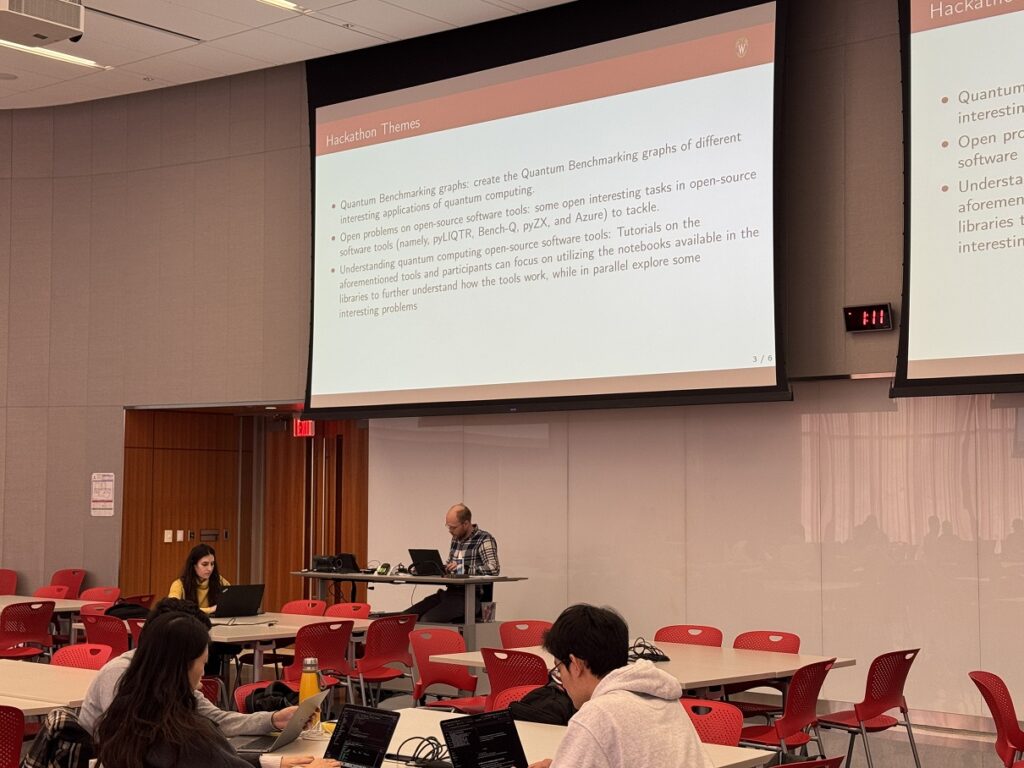
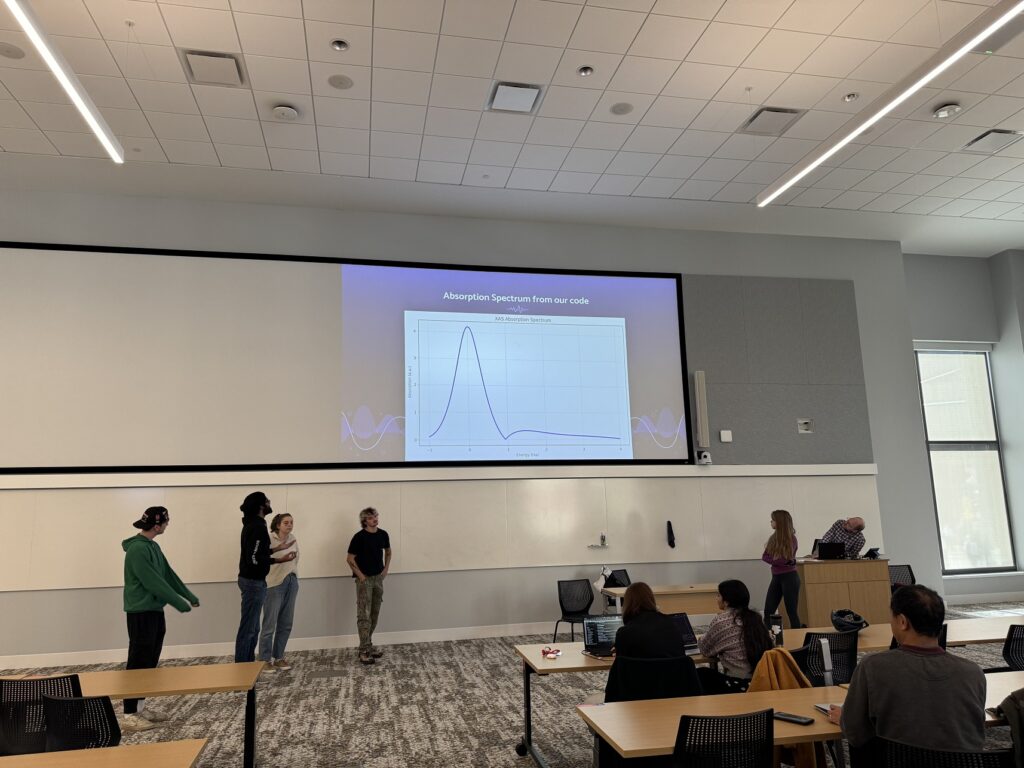
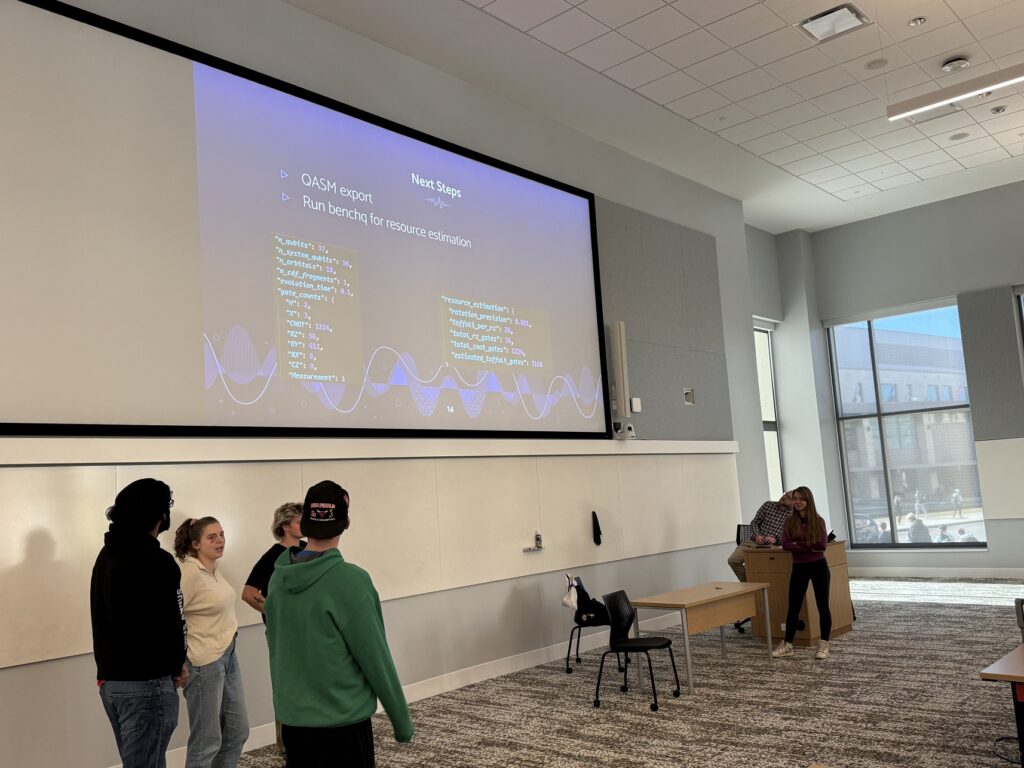
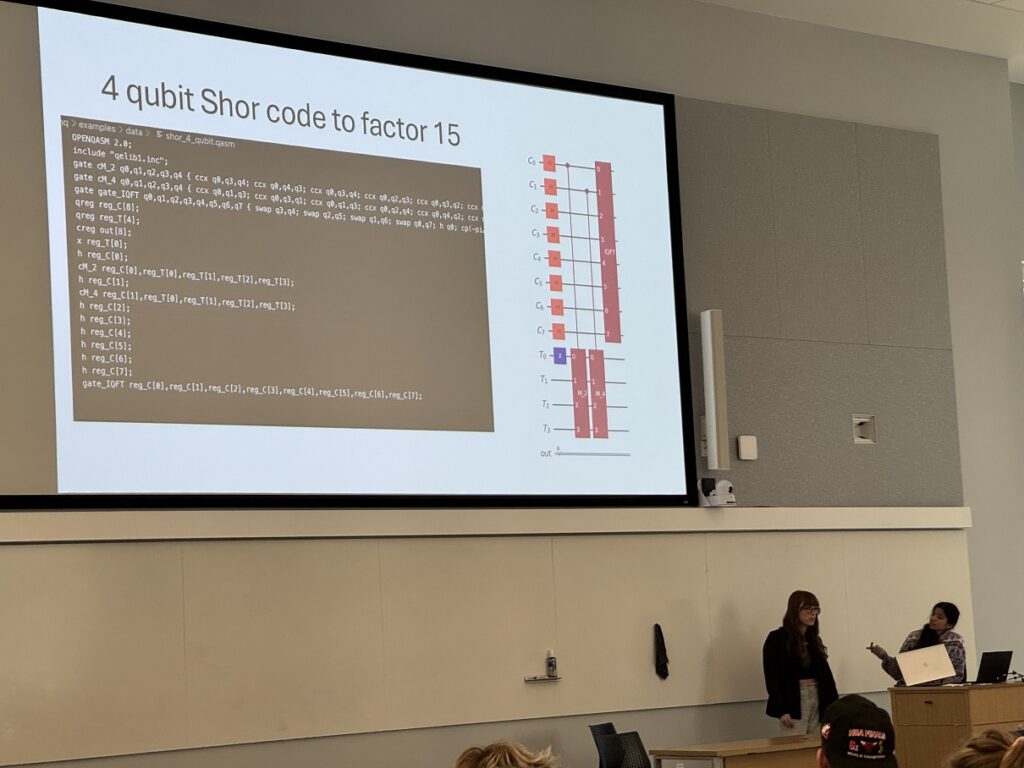
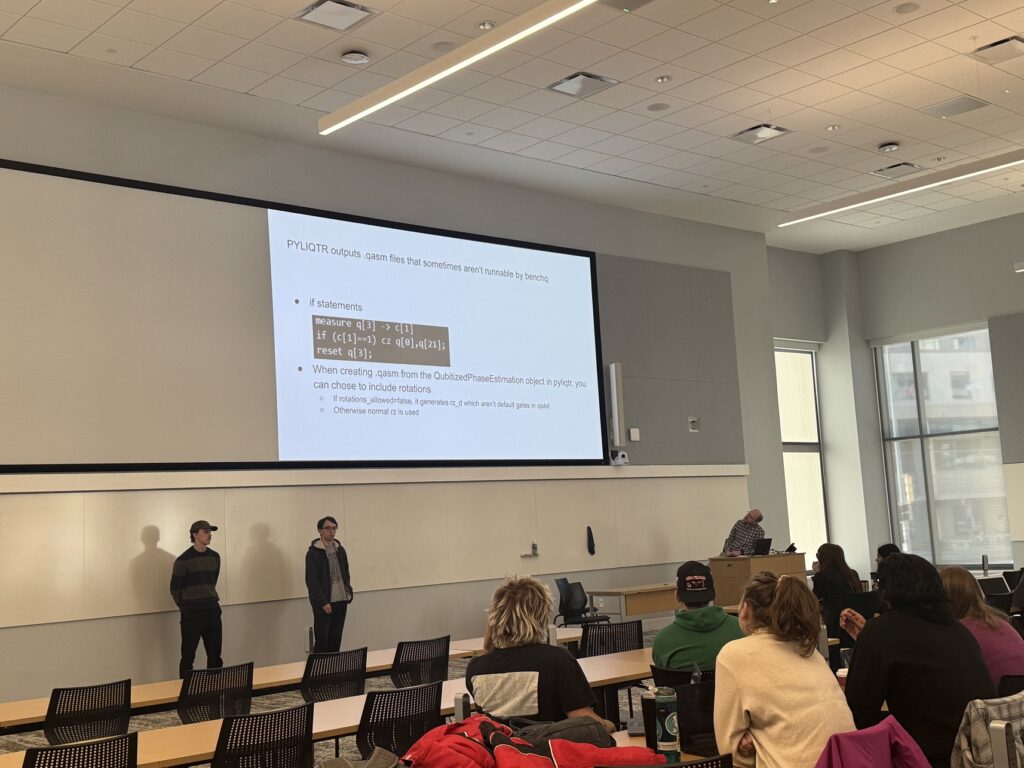

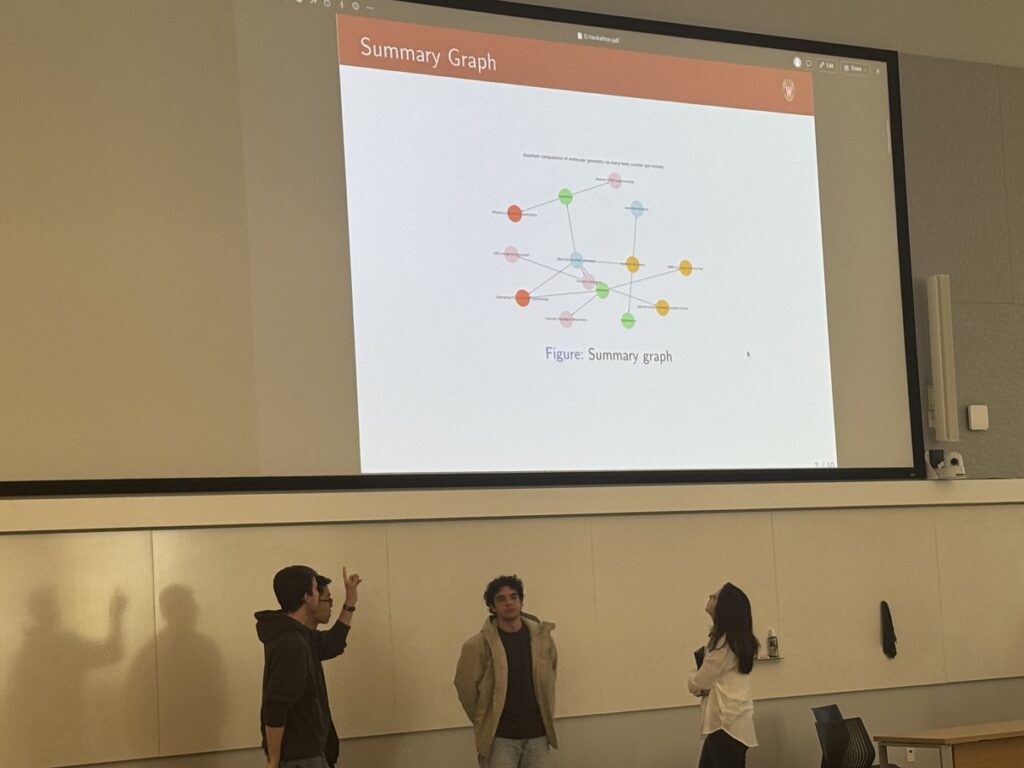
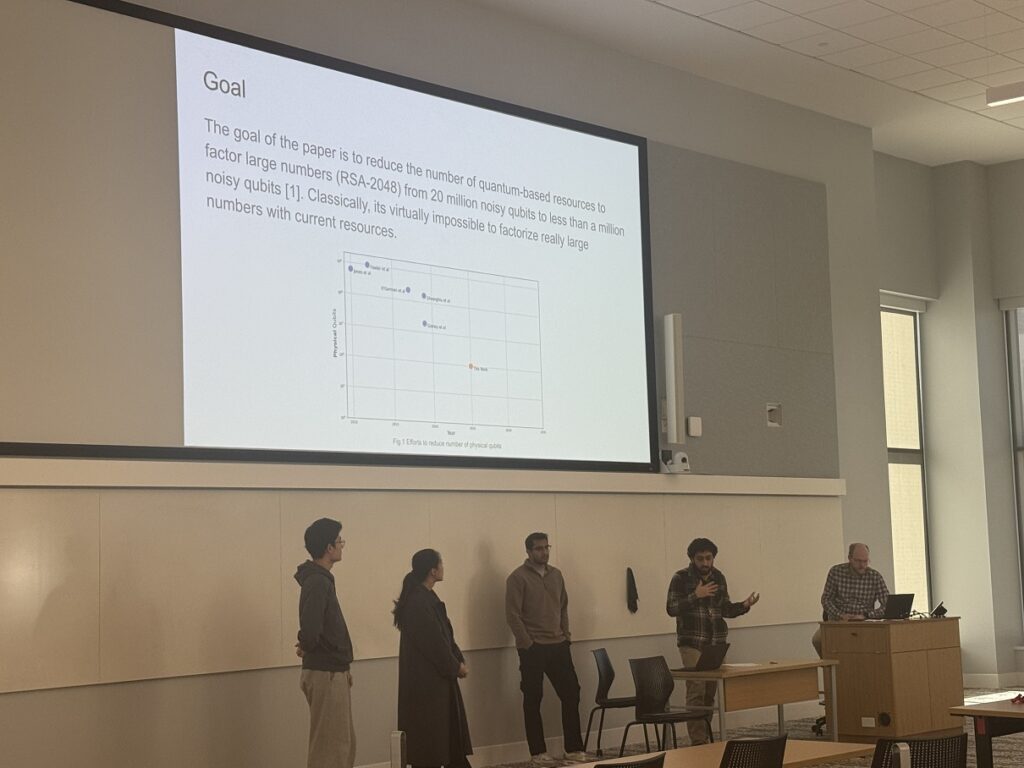
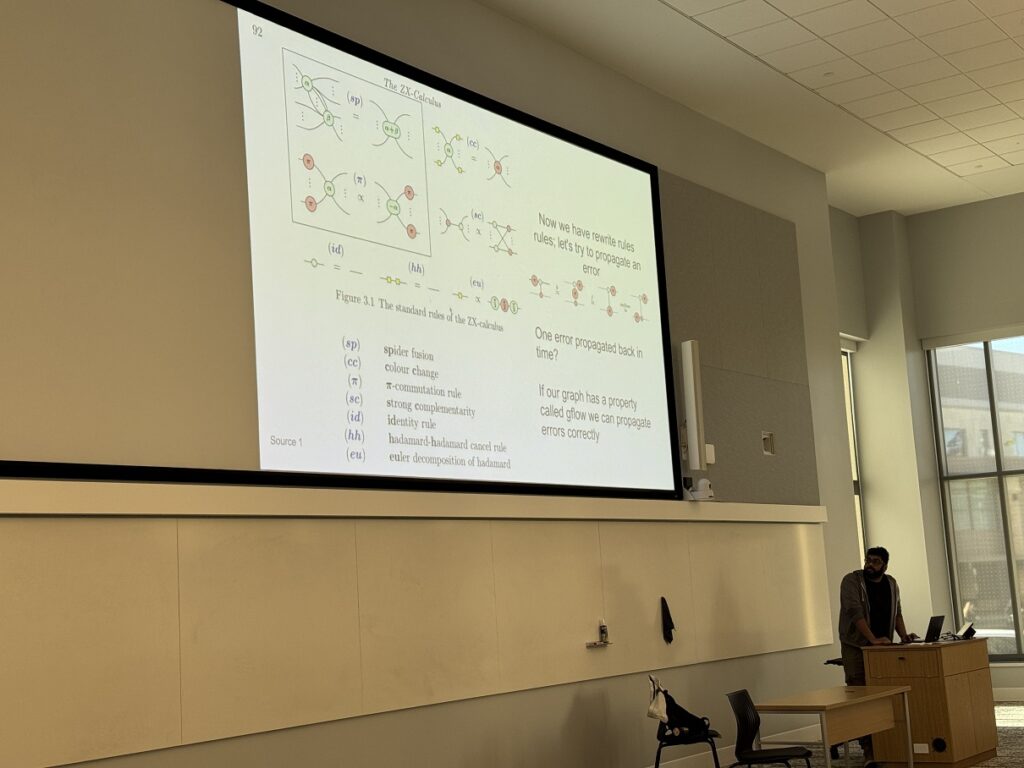
UW-Madison students and postdocs showcased their work during the Chicago Quantum Summit
Faculty, staff and students from our university participated in the annual Chicago Quantum Summit, one of the world’s key forums for exploring the full spectrum of quantum economy needs.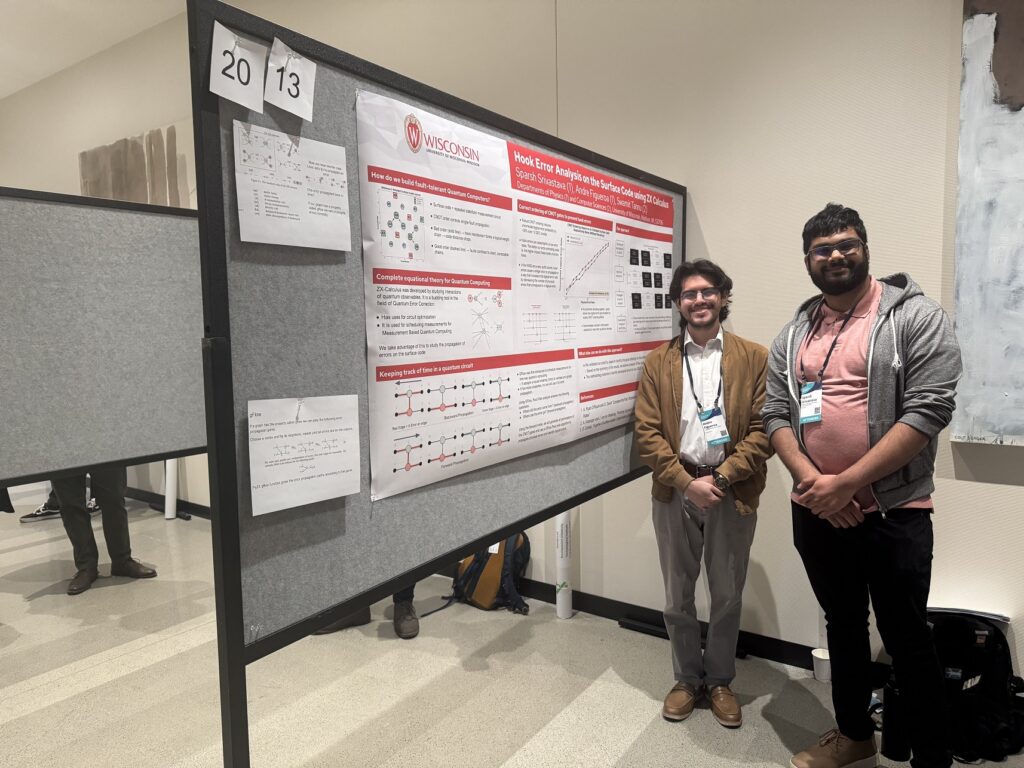
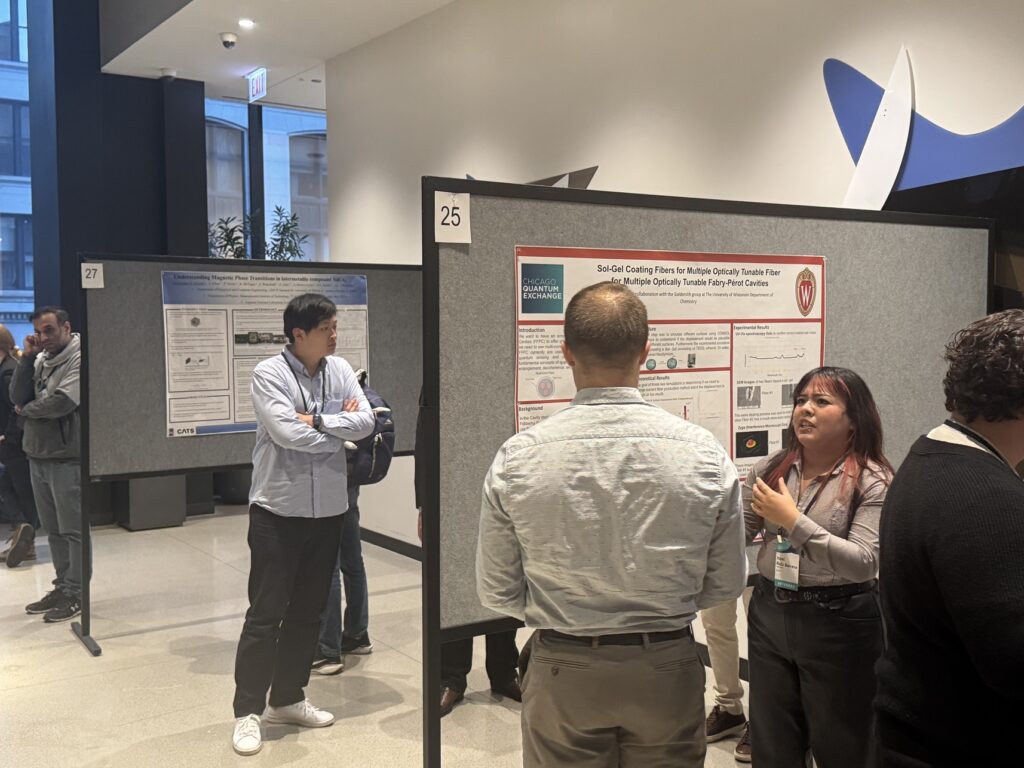
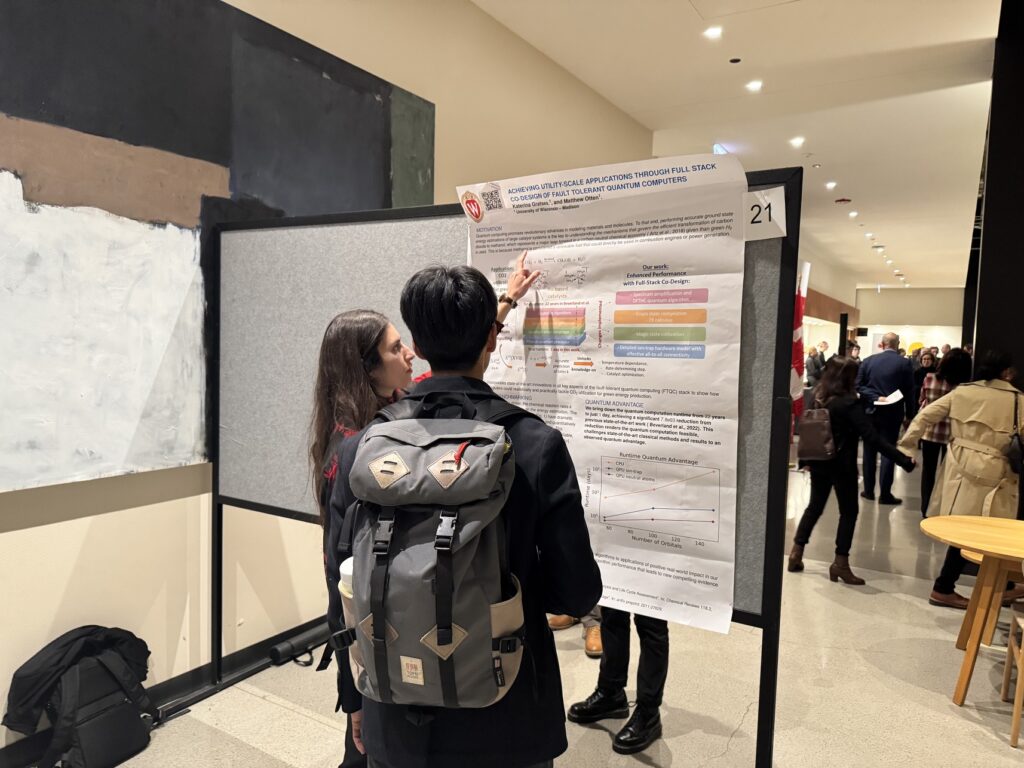
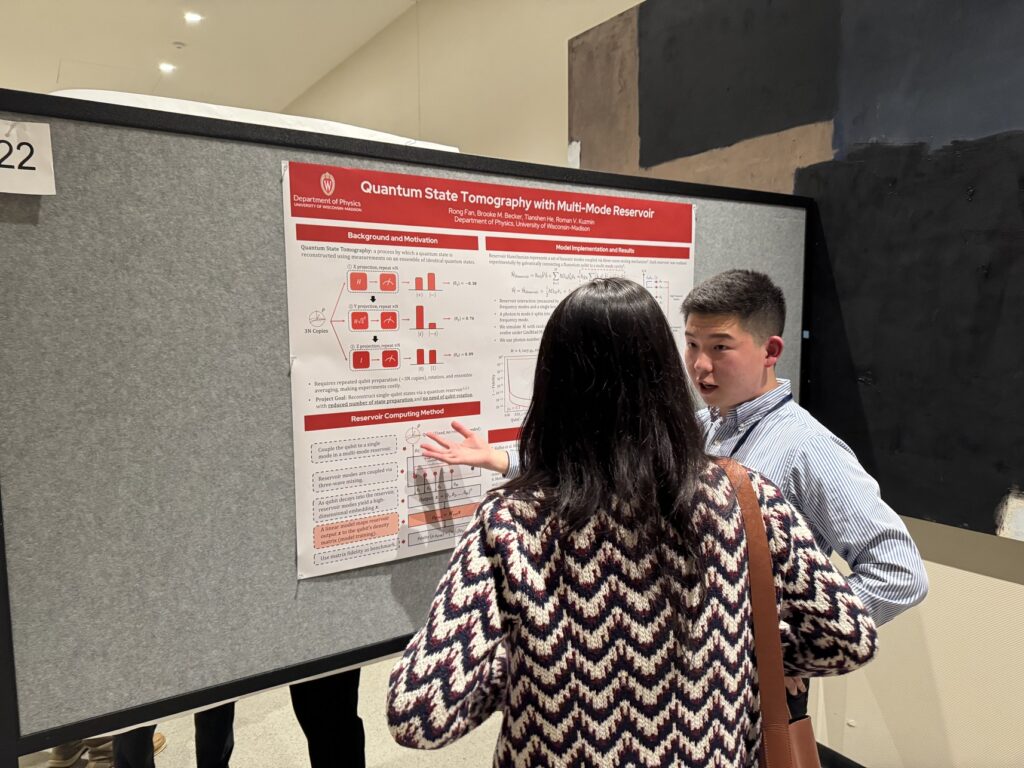
Mark Saffman awarded 2026 APS Ramsey Prize
Mark Saffman, the Johannes Rydberg Professor of Physics and director of the Wisconsin Quantum Institute, won the American Physical Society’s 2026 Norman F. Ramsey Prize in Atomic, Molecular, and Optical Physics, and in Precision Tests …
Read the full article at: https://www.physics.wisc.edu/2025/11/05/mark-saffman-awarded-2026-aps-ramsey-prize/